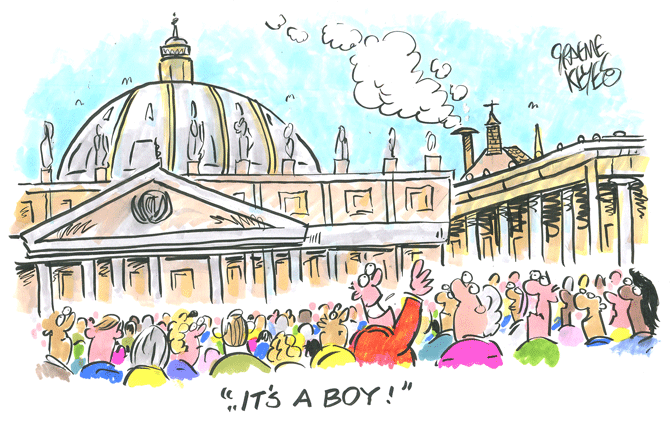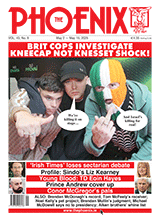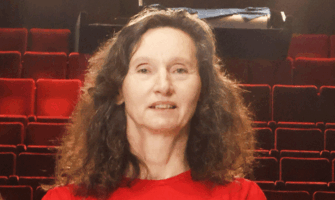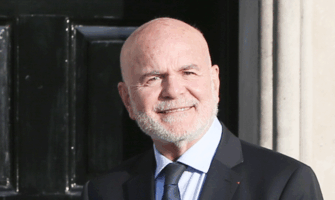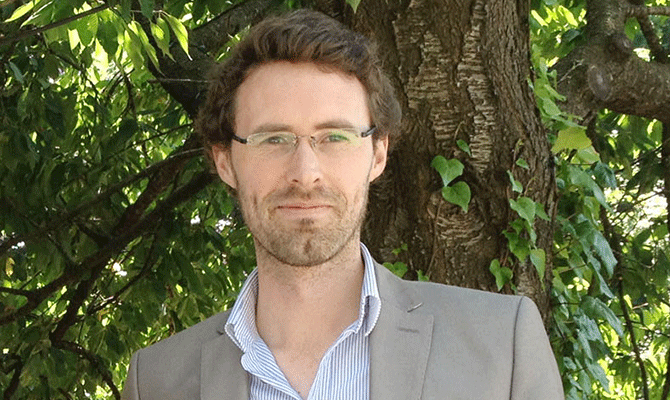
Ruadhán Mac Cormaic
Last week the Irish Times lost a Press Council appeal against a Press Ombudsman’s decision. It is, for the paper, a disastrous outcome and vindicates The Phoenix’s criticism of the Irish Times’s failure to detail sexual abuse of Protestant children.
The successful complainant, Dr Niall Meehan of Griffith College, welcomed the newspaper reporting on children abused by the Catholic Church. He wanted the same consideration for Protestant victims.
He noted that in September 2024, the newspaper reported that the Ryan child abuse commission was about abuse by 18 Roman Catholic orders. But the state-appointed body did not have a solely Roman Catholic remit. It included other institutions that the IT ignored – consistently.
In one group of Protestant orphanages, Mrs Smyly’s Church of Ireland Children’s Homes, extensive physical, emotional and sexual abuse occurred. Meehan observed that, over many decades, this was something the paper “never once described… No victim was ever cited on their experience. Is there another significant abusive institution in the state where the paper has accomplished this remarkable feat?”
Meehan noted allegations that a senior Church of Ireland (CofI) clergyman and Smyly’s trustee abused children in the orphanage and elsewhere. He instanced also Joe Condell, who worked in Smyly’s as part of his divinity training. In 2008 Reverend Canon Joe Condell, rector of Roscrea, was convicted of possessing graphic child pornography. Neither Smyly’s nor the CofI informed gardaí of Condell’s connection to Smyly’s. As part of a successful cover-up, former residents were not contacted – a clear dereliction of Smyly’s duty of care.
The IT report also states that the Catholic religious orders had paid only part of promised millions in abuse compensation. But Smyly’s contributed no money on behalf of its victims, who also received state redress payments. The IT has consistently ignored this fact, as well as the reason for the payments.
It is not as though the newspaper is uninformed. Meehan had supplied evidence that was rebuffed. The paper attempted to portray him to the ombudsman as a crank for submitting letters and suggesting opinion pieces. He merely sought, politely, to correct the record.
For nearly five years, from January 2020 when Press Ombudsman pressure forced publication of a two-month-old letter, the IT refused Meehan’s contributions on, amongst other things, the Mother and Baby Homes Commission misreporting a Protestant unmarried mother as Catholic; ignored abuse in Protestant schools; its refusal to report the CofI hiding WG Neely, an abusing Antrim clergyman, in Tipperary (where Condell also officiated).
The paper even refused to report on church solicitors warning the media not to name Neely as an abuser. The Church of Ireland Historical Society, which Neely founded, lied about his role and disappeared his name. The IT ignored news that the society cancelled its founder.
If Catholic Church organisations did those things, the paper would be all over it like a rash. As one CofI clergyman remarked: “It’s boxing gloves for the Catholic Church, kitten mittens for the CofI.”
The first post-ban Meehan letter the paper published, on September 4 last, was mentioned on RTÉ’s Morning Ireland, an indication of its significance. Meehan critiqued the sectarian basis of the State’s recently published inquiry into abuse in Catholic schools only. The same day, however, the IT’s news columns ignored that pertinent fact and misreported the Ryan Commission’s remit.
The newspaper refused to publish a letter Meehan then submitted on the mistake or even to discuss it. The ban was back.
He complained to Press Ombudsman Susan McKay. A long-drawn-out process saw IT editor Ruadhán Mac Cormaic effectively arguing that forcing the paper to include Protestant abuse would tie “the hands of commentators” or would “render informed comment and analysis more cumbersome to write and more difficult to read”.
Exposure of abuse encourages more victims to speak. It puts pressure on institutions to come clean. The CofI hides its secrets under a blanket of media indifference. It shields itself behind a mountain of Catholic dirty linen. The state, in turn, deflects its culpability on to the Catholic Church. A sectarian inquiry into education abuse is the result, something that reinforces the process.
Irish Times reporting facilitates that. It’s time for a serious rethink.
